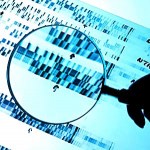Life in the Lab
This week, ScienceBloggers are full of ideas to better the practice of research science. In Scicurious's perfect lab, negative data--data that doesn't support a study's hypothesis--would be every bit as publishable as data that confirms it. In Janet Stemwedel's perfect lab, animal researchers would engage in dialogue over debate in the face of violent opposition. In DrugMonkey's perfect lab, undergraduate research assistants would be paid or receive academic credit for their work. And while Isis the Scientist agrees with DrugMonkey, she offers some hypothetical situations that could…
As any working scientist knows, writing grant proposals is a necessary skill to learn if your lab relies on government or other outside funding to operate. And ScienceBloggers know the process well: From how to allocate investigator effort across multiple grants, to who ought to be allowed access to grant proposals, to how many sleepless nights are involved in a single application, bloggers are delving into the nitty-gritty details of grant preparation. Isis the Scientist offers what is perhaps most needed for an overworked researcher--the perfect musical accompaniment to keep motivation…
All scientific laboratories are not created equal, a fact evident in the differences in regulations and expectations between large research centers and smaller-scale labs. As Mike the Mad Biologist explains, large genomics labs in particular are subject to productivity standards, such as the swift publicization of genomic sequence data, that smaller labs are not forced to comply with, largely due to the sources of their funding—large centers often operate on federal contract rather than grant money. Is this dichotomy fair to large genomics centers? Mike explains why it might be necessary,…

